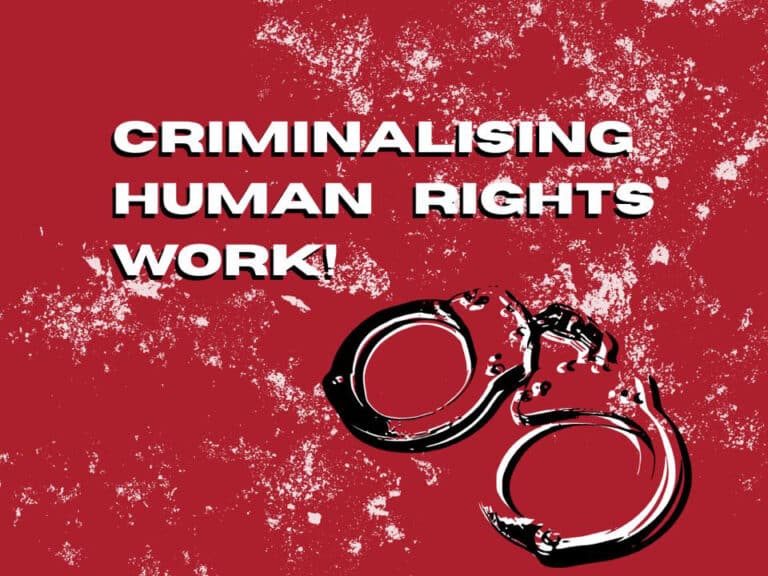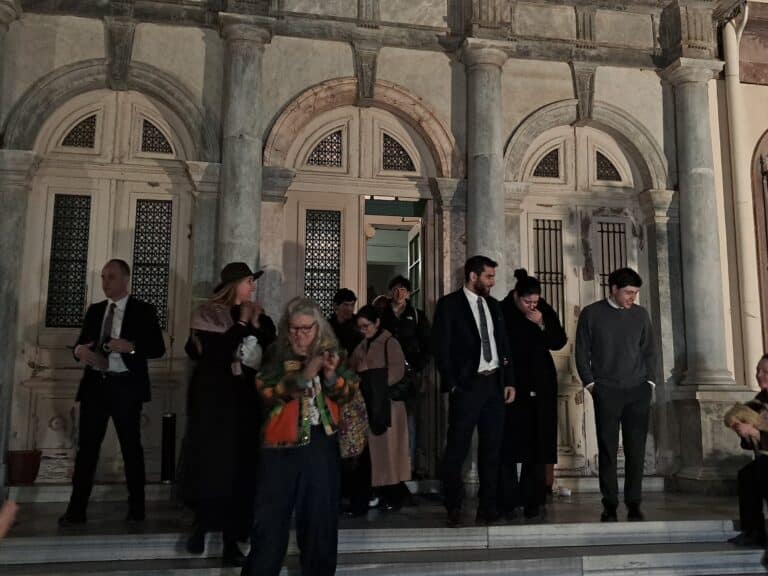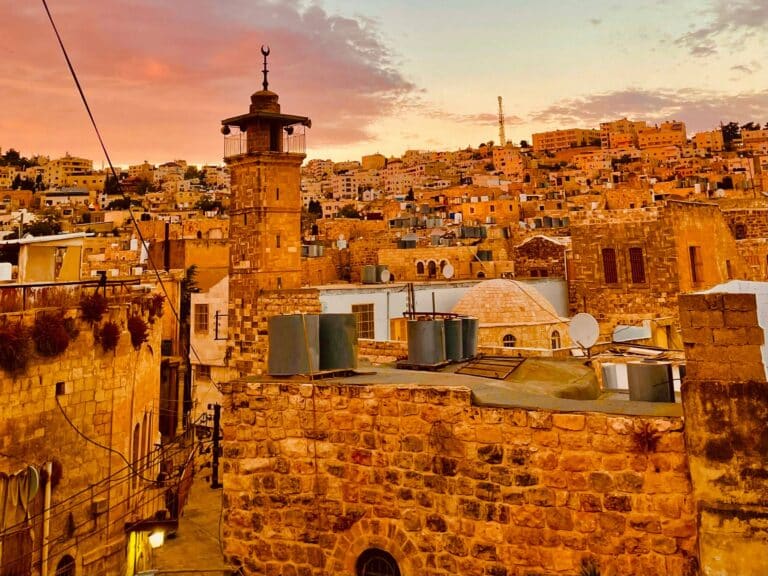Just days after the most recent attack, West Bank
villagers successfully plowed fields to which Israeli settlers and
soldiers had denied them access for as long as nine years. On 21 and
22 November, the residents of At-Tuwani, as they do each planting
season, organ- ized themselves and their relatives from the nearby
town of Yatta to plow and plant the Khoruba valley with wheat and
barley. Palestinians mobilize large numbers of people to undertake
such plantings in order to deter Israeli settler attacks. Settlers
from the nearby illegal outpost of Havat Ma’on hope to expand into
these areas, and have already taken a small plot of land at the top
of Khoruba valley.
After planting in the Khoruba valley, the
Palestinians moved over to the next valley, Mshaha. Settlers
from the outpost attempted to block their tractors. But the presence
of so many Palestinians together persuaded the Israeli soldiers and
Israeli police who were present not to interfere with the plowing.
Plowing and planting fields-an important part of local economic
life-is also a way of ensuring for another year that ever expanding
Israeli settlements will not take over the agricultural land.
Palestinians were forced to abandon these valleys and
surrounding villages in 2000 after years of harassment and violent
attacks by Havat Ma’on outpost settlers. Israeli authorities later
removed the outpost, but settlers relocated to another nearby hill
and ensured that working in the valley would remain dangerous for
Palestinians.
Less than a week earlier, on 15 November,
approximately fifteen masked settlers from Havat Ma’on outpost
attacked three Palestinian shepherds grazing their flocks in the
Mshaha valley. The settlers ran down from a ridge above the
shepherds, hurling rocks. The shepherds got their flocks away before
the rocks injured them.
Meanwhile, the settlers stole two of the shepherds’
donkeys. One they killed with a knife wound in the chest area.
They slashed the other across its throat, but it survived.
Settlers also hit two CPTers who were accompanying
the shepherds with large rocks. One sustained minor injuries.
The Israeli police were called four times before responding to
the incident. They did not initially respond to reports of
settlers attacking Palestinian shepherds and internationals, but only
responded when they learned of the attack on the donkeys.
The assault occurred on land the shepherds graze
daily and which the settlers hope to take for the expansion of Havat
Ma’on. Replacing the donkey will cost around 1000 NIS, or
US$265. The Israeli occupation has impoverished the shepherds
of the area, and they are currently dependent on outside food aid.
[Note: According to the Geneva Conventions, the
International Court of Justice in The Hague, and numerous United
Nations resolutions, all Israeli settlements in the Occupied
Palestinian Territories are illegal. Most settlement outposts are
considered illegal under Israeli law.]



